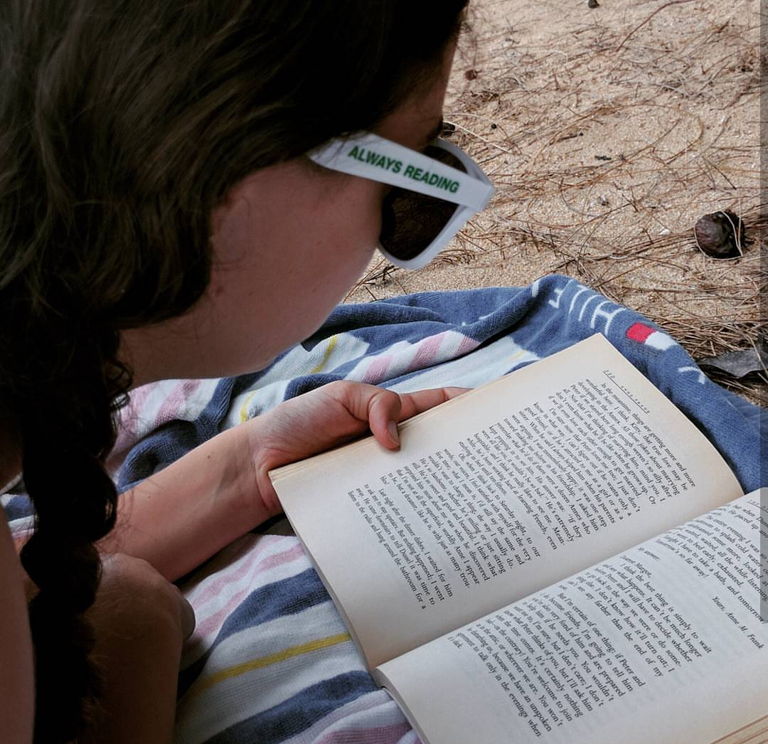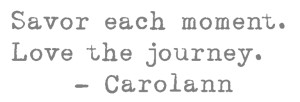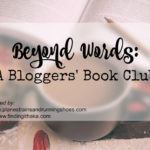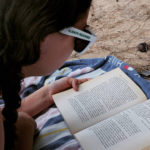I remember the first time I heard the concept of banning books. I was in high school. I didn’t understand it. It seemed like fiction, something out of Fahrenheit 451. Little did I know how close that book is to life.
I thought that banning books was something of the past, something that schools and parents and churches and communities used to do. Can’t you read any book you want just by going to the library? I had no idea that people try to censor what books go into libraries, as if they should be the ones deciding what anyone reads. Even now, people challenge books because they don’t like their messages, because they go against their own personal beliefs. Kinda messed up.

But what books are banned? Who has the nerve to think that they can ban books?
I looked up the most banned or challenged books of 2015 and two of them were The Bible because it’s too religious and The Curious Incident of the Dog in the Nighttime, by Mark Haddon, because the main character is atheist. To me that just proves the illogic of banning books. You just can’t go around telling people they shouldn’t read things that you don’t like or don’t agree with. Instead, maybe you should read it yourself. You might be surprised with how reading something you don’t agree with can inspire or change you.
The Curious Incident of the Dog in the Nighttime is a beautiful book. Whether you are religious or not, anyone can love this book about being different, about seeing the world a different way, about overcoming obstacles.
I never paid much attention to Banned Books Week because I never had been told not to read anything. I didn’t realize what a a huge problem libraries face when people constantly try to ban books, until I read Audrey’s post about it and started researching it further.
But maybe it’s not just me. The American Library Association reports that up to 85% of book challenges receive no media attention and remain unreported. When I read that, I decided to write this post.
Growing up, no one ever told me not to read something. My parents encouraged me to read anything I wanted and didn’t bother to monitor what I read, so I never felt like I had to hide anything. It was liberating in a way I never thought about until I was older. I worked in a library all throughout high school, so I had access to any books I wanted without even having to check them out. I would peruse the shelves instead of working and sometimes find a little abandoned corner wheres I would sit down and read the most random books. I always thought I was getting away with something, but looking back, I think that the librarians knew. They wanted me to read.
And, my high school wasn’t perfect, but we did read some of the famous banned books that deal with hard topics.
So this week, celebrate the freedom to read.
This week is Banned Books Week, where we celebrate the freedom to read and the books that challenge us. We speak out in support of “the freedom to seek, to publish, to read, and to express ideas, even those some consider unorthodox or unpopular. By focusing on efforts across the country to remove or restrict access to books, Banned Books Week draws national attention to the harms of censorship.” – American Library Association.
So this week, read whatever you want. But maybe even more importantly, read things that you don’t agree with. Consider other views. Read books outside your comfort zone and try to be more understanding of people who hold different beliefs than you.
Hope that no struggling teenager is ever told not to explore an idea that interests them, that’s important to them, that’s vital to them. Reading is often how we discover important things about ourselves and learn things that we’re too scared to ask about. Compassion is what will bring us together, not banning, censorship, and dividing.
So this week, read a banned book, a challenged book. Because those are often the most important ones.
The authors of these books are the revolutionaries, the ones bringing the most important issues to light. I don’t want to live in a world where authors are scared to pursue certain ideas or where we are afraid to read about them. I don’t want to live in a world where my teenager isn’t able to access books that will give them strength.
It seems to me like the books that people challenge directly mirror the fears and politics of our society, which make them even more important. Just look at the list of books that were challenged or banned in 2015. The hatred and fear and intolerance is clear.
So in celebration of Banned Books Week, I’m going to read Looking for Alaska, by John Green. Because it was #1 on the list of books that were challenged in 2015.
And I’m going to list a few of my favorite books that have been banned or challenged over the years. These books are important and I can’t see any reasonable person wanting to challenge them. Like Speak, by Laurie Halse Anderson, a book about a high school girl who finding her voice after being raped. Why would you want to ban that book? Don’t we want our young girls to speak up for themselves?
I would like to meet the people who tried to challenge these books. Seriously?
A few of my favorites:
Anne Frank: The Diary of a Young Girl, by Frank, Anne.
Feed, by M.T. Anderson
1984, by George Orwell
The Giver, by Lois Lowry
In Cold Blood, by Truman Capote
Persepolis, by Marjane Satrapi
The Kite Runner, by Khaled Hosseini
The Perks of Being a Wallflower, by Stephen Chbosky
The Hunger Games, by Suzanne Collins
The Curious Incident of the Dog in the Nighttime, by Mark Haddon
The Handmaid’s Tale, by Margaret Atwood
Are You There, God? It’s Me, Margaret, by Judy Blume
Brave New World, by Aldous Huxley
Harry Potter (series), by J.K. Rowling
Bridge To Terabithia, by Katherine Paterson
James and the Giant Peach, by Roald Dahl. (I did a big project on this book in middle school! Roald Dahl was my favorite author growing up.)
Speak, by Laurie Halse Anderson
The Things They Carried, by Tim O’Brien
Fahrenheit 451, by Ray Bradbury
The Awakening, by Kate Chopin
My Brother Sam Is Dead, by James Lincoln Collier
The Lord of the Rings, by J.R.R. Tolkien
To Kill a Mockingbird, by Harper Lee
What are your favorite banned books?
PS: Don’t forget to link up with Christy and me on Friday! We’re linking up our book reviews. What have you been reading lately?











I am always amazed at the list of books that have been banned. I was reading on another blog that The Witch of Blackbird Pond was banned because it talked about witchcraft. Despite the fact there actually isn’t a witch in it and it teaches a message of tolerance and understanding. I understand that there are books people may feel go against their own personal belief system but there is no need to try to force your beliefs on the entire world. And now I think I will dig out my copy of Anne Frank or To Kill a Mocking Bird and reread it, just because I can.
I’ve never read The Witch of Blackbird Pond, but now I want to! You don’t have to agree with everything you read, and you shouldn’t. But you can’t tell other people what to read because you don’t like it. I really don’t understand how anyone could go into a library and demand a book like Anne Frank or To Kill a Mockingbird be removed from the shelves. It’s from these books that we learn about compassion and tolerance. So glad to have met another book lover blogger!
It kills me that so many banned or challenged books are ones that focus on REAL LIFE issues. It’s stuff that really happens and really affects our society. To ignore books like “Speak” is to ignore the fact that RAPE DOES HAPPEN and it’s something that we need to pay attention to!
In the same breath, books like “James and the Giant Peach”, “Alice in Wonderland”, and the HP series are banned because they’re magical. Totally makes no sense!
Thank you for the link 🙂
So some books are banned because they are too close to real life, and others are banned because they are too magical. Ridiculous. When I saw Speak added to the list, I was enraged. I only read it recently, but I remember thinking what an important book it is for young women to read. I remember when my mother brought home Harry Potter for me before I even know what it was. In my Catholic grammar school, we were all reading it. I don’t get who would think that Harry Potter would take people away from religion. Are we all going to go around shouting Avada Kedavra at each other? There are so many beautiful lessons in Harry Potter and in other fantasy books that seems dumb to me to want to ban them. There is a quote I love: “You have to write the book that wants to be written. And if the book will be too difficult for grown-ups, then you write it for children.” ― Madeleine L’Engle. Adults just don’t get it!
Love this! I found out about banned books week in High School and I make it a point to read a few banned books every year. I think it’s so important to read books that challenge your views or help you to understand another persons views, even if you don’t agree with them.
I think that’s awesome that you read banned books ever year. Just going through the list I didn’t realize how many of them I have read without even realizing it. I guess I like to live on the wild side! Lately I’ve been getting so into memoirs because they really help you see the world through other people’s eyes.
I seriously can’t believe that I’ve read that many books that have been banned or challenged! It always amazes me how people fear something that’s different than themselves and try to make so that other people can’t know or learn or read about it. Just because you don’t want to read about it doesn’t mean you should stop others from reading about it.
Amen, friend! One thing I love about blogging, too, is that you get exposed to so many different people’s perspectives and you get used to hearing about people who are so different from you. Maybe we are building a better world, one blog at a time?!?!
I love so many of these books on this list but my all time favorite is In Cold Blood! Such a wonderful piece of literature.
I have so many favorite books but In Cold Blood is definitely towards the top. I just read it for the first time last year and I could not put it down! Even though you know what happens, the way he wrote it is just so captivating and haunting.
I love your sunglasses!!!
I’ve read over half the books on your list. It seems crazy that people would ban some of the most moving, groundbreaking books.
Thank you! My friend mailed them to me and it was basically the best surprise ever. And, that’s exactly what I was thinking as I went through the list on the ALA website. That’s also why I started reading Looking for Alaska – if it is the most challenged book of 2015, it must be good. So far it is!
Not so much related to books, although I think in this country government bodies probably do have some input into which books are allowed to be sold in mainstream bookstores–but movies have to go through a censorship board in this country.
We went to see the movie “Ben-Hur” recently–I love the story of the old one, and even though the new one didn’t get great reviews, I thought it would still be worth a watch. Only, when we saw it, the movie’s ending made 0 sense whatsoever, because Christ never appeared in the movie, there was no crucifixion, there was no explanation as to how the family members didn’t have leprosy anymore and why Judah Ben-Hur chose to pursue forgiveness instead of revenge. It made no sense. I did some research, and found out that this ‘chopped up’ version of the movie was actually the version distributed to the censorship board of this country, because it’s known that depictions of any of the prophets recognized by Islam will get a movie banned. Past movies that have been banned from this country are “Noah”, the “Exodus” and, back in the late 90s, the cartoon movie “The Prince of Egypt”. Personally, I think it was a poor decision to distribute a version of the movie that didn’t make any sense just so that it would make it past the censorship board–better to get banned in its original form! Because the freedom to see a partial movie isn’t what I’d call freedom…